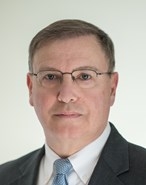NAFUSA life member Chuck Rosenberg (ED Virginia 2006-2008, Texas 2005-2006) and the former Acting Director of DEA), will return to present the 2020 ethics lecture at the annual NAFUSA conference in New York City, September 30-October 2. Chuck was scheduled to give this lecture last year at the San Francisco conference but had to cancel due to an appendectomy attack. Chuck will speak on “The Korematsu Story–The Duty of Candor to The Court”. Registration for fall conference is expected to begin in June.
Here is his preview:
In early 1942, following the Japanese attack on Pearl Harbor, FDR issued Executive Order 9066, enabling west coast military commanders to set up curfews and exclusion zones, ostensibly to protect the US against sabotage by Japanese Americans. More than 110,000 Japanese Americans on the west coast were relocated to internment camps, primarily in the mountain west. However, two reports – one commissioned by the State Department and one conducted by the Naval Office of Intelligence – showed that there actually was not a significant threat from Japanese Americans living on the west coast. Indeed, for the most part, those reports showed quite the opposite and, to the extent there was a threat from Japanese Americans, it was confined to a small group of individuals largely known to the FBI and national security officials, many of whom were already under surveillance or in custody. Further, at least two DOJ attorneys knew about the Munson and Ringle reports and believed – and put it in writing – that withholding the findings from those reports from the Supreme Court in connection with the litigation of the Hirabayashi (curfew) and Korematsu (exclusion) cases amounted to a suppression of evidence. Those DOJ attorneys lost an internal debate to the Solicitor General, who concealed the information from the Court and misled it in oral argument in response to a direct question about the views of the USG on the threat posed by Japanese Americans. About seven decades later, the SG’s office (led, at the time, by Neal Katyal) confessed error, acknowledging that the reports had been suppressed and that providing truthful information to the Court was not only required but might have affected the outcome.


You must be logged in to post a comment.